Description
ABSTRACT
Developing Securities Markets in Sub-Saharan Africa: Does it Matter?
Onoriode Reginald Aziza
A raging debate exists on the utility of stock market capitalism to African countries. Whilst some commentators take the view that stock markets are irrelevant to Africa and advise African states to prioritise the development of their banking systems, other commentators view well-functioning markets is essential to economic growth. This paper advances two central claims using developments in law and finance literature. First, that there is substantial empirical and historical evidence in support of the theoretical proposition that liquid securities markets promote economic growth. In this regard, banks are not substitutes but complements to securities markets in promoting long-run growth. Second, by conducting an empirical analysis of securities cross-listing of all firms listed on all 24 stock exchanges in Sub-Saharan Africa, this paper advances the claim that financing practice shows that cross-listing has not provided a suitable alternative source of finance to Sub-Saharan African firms, making the development of domestic markets and domestic regulation crucially important.
Keywords: Securities Market, Stock Exchanges, Sub-Saharan Africa.
INTRODUCTION
A raging debate exists on the utility of stock market capitalism to African countries. Whilst some commentators take the view that stock markets are irrelevant to Africa and advise African states to prioritise the development of their banking systems, other commentators view well-functioning markets as crucial to economic growth. Although the 1990s witnessed an exponential growth in the2 number of stock markets operating in Sub-Saharan Africa, these debates have not been 3
definitively settled as new capital markets continue to open across the region, and countries that 4 currently do not have domestic stock markets seriously consider the merits of establishing them.
*LL.B (Ife) First Class; BL. (Yenagoa) First Class; MCL (Cambridge) First Class; DPhil (Oxford). Attorney, Chevron Nigeria Limited. This paper presents a part of my doctoral research into the development of securities markets in Sub-Saharan Africa. Funding for this project was graciously provided by the Faculty of Law and Wadham College, University of Oxford as well as the Federal Government of Nigeria. I would like to thank Professors Luca Enriques, John Armour and Paul Davies, all of the Faculty of Law, University of Oxford; and ProfessorBrian Cheffins of the Faculty of Law, University of Cambridge for their comments and feedback on earlier drafts of this Paper. I would also like to thank the anonymous reviewer of the publication draft of the Paper. All errors remain mine.
- Indeed, 12 of the 24 capital markets operating in Sub-Saharan Africa were established in the 1990s.
- The Bolsa de Davida e Valores de Angola (Angola) and the Maseru Securities Market (Lesotho) are the two most recently founded stock exchanges in Sub-Saharan Africa, having been established in 2014 and 2016 respectively. Neither market had a listed issuer as at March 2020.
- For many years, Ethiopia had stood as one of the largest economies in Sub-Saharan Africa without a stock market. Ethiopia is now finalising plans to establish its stock exchange in 2020. See for instance, Samuel Gebre, Ethiopia to Set Up Regulator for First Stock Exchange This Year (Bloomberg, 30 June 2020) accessed 30 July 2020.

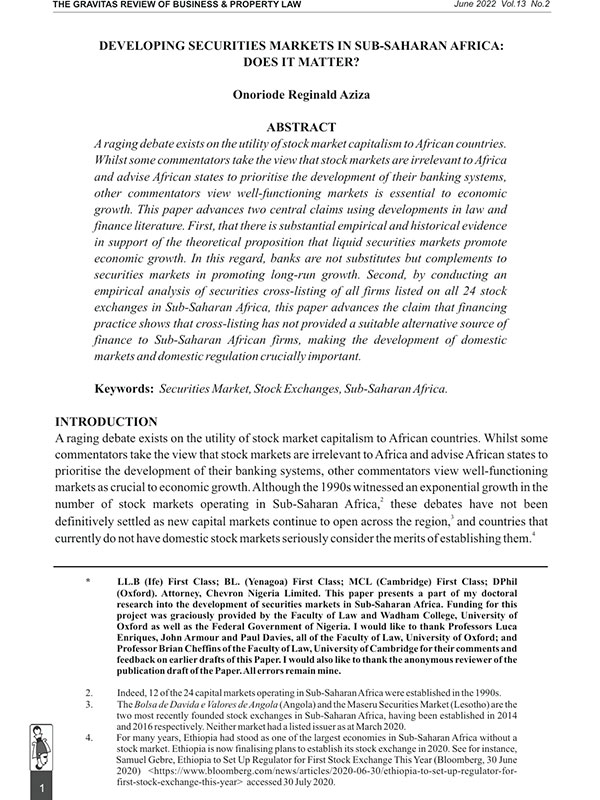
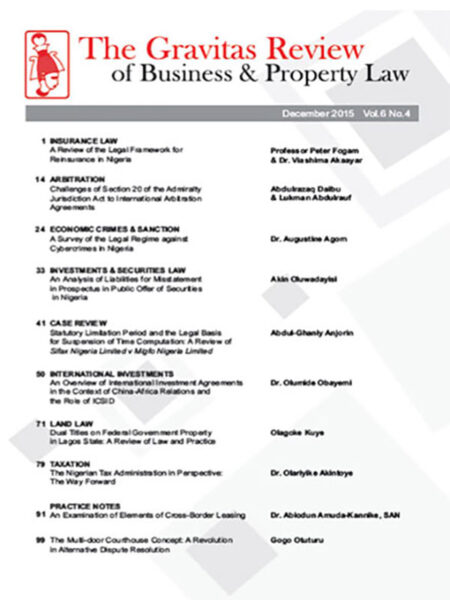
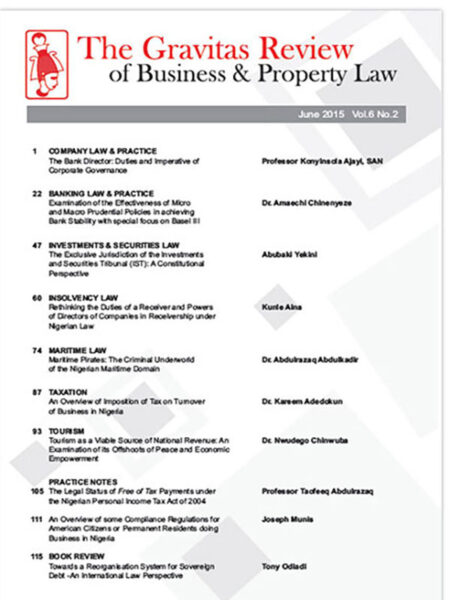
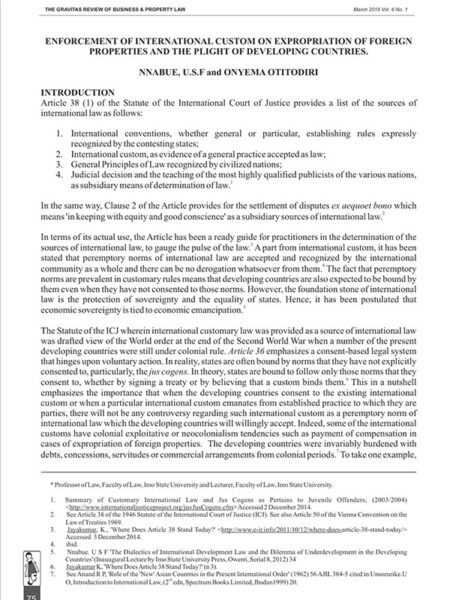
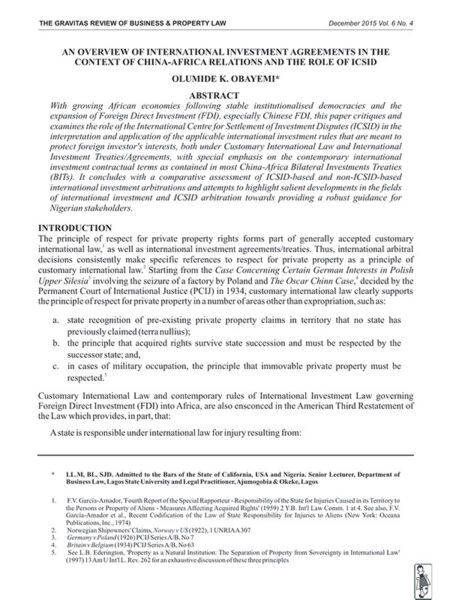


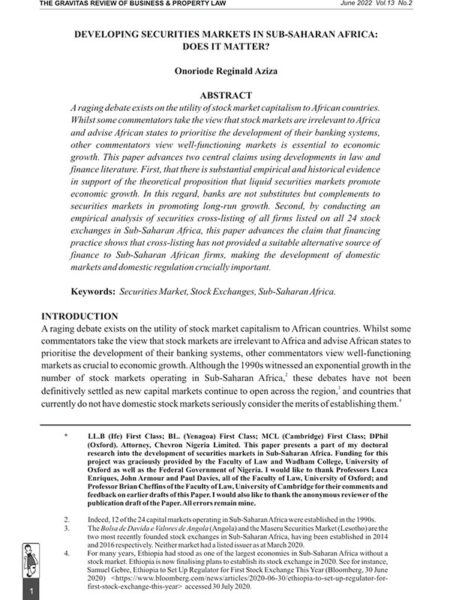
Reviews
There are no reviews yet.